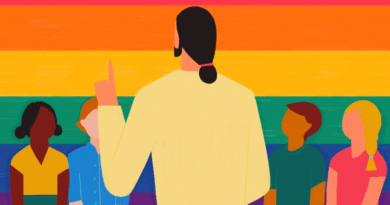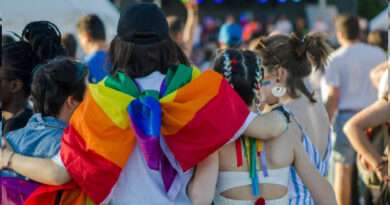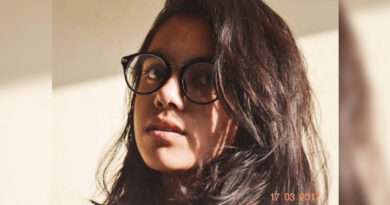The Intersection of Class and Queerness: How One’s Social Class Determines Their Freedom
Class is a crucial social marker that determines various aspects of an individual’s life, such as education, health, employment, clothing, access to resources, and social relations. The intersection of caste and queerness amplifies the oppression experienced by an individual and hinders their access to freedom. This is because an individual’s social class also determines their access to social spaces and can reduce their opportunities to attend community events. Moreover, social class also prevents queer folks from accessing affirmative healthcare and supportive spaces. Therefore, the double marginalisation experienced by lower and middle-class LGBTQ+ folks has far-reaching effects on their mental as well as physical health, and can cause them to feel isolated and lonely.
Access to Safe Spaces, Socialisation, and LGBTQ+ Events
Image by Gerd Altmann from Pixabay
Ever since the decriminalisation of Section 377 in 2018, there has been an increase in the number of LGBTQ+ events, especially in cities such as Delhi, Mumbai, and Bangalore. These events are designed to celebrate queerness while also providing opportunities for LGBTQ+ folks to socialise and become acquainted with other fellow members of the community. While these events aim to provide safe and inclusive spaces to LGBTQ+ folks so they can express themselves authentically and feel a sense of community and belonging, most of these events take place in big cities and have a hefty entry fee that not everyone can afford. This prevents folks from rural and semi-rural areas, as well as middle and lower-class backgrounds, from accessing community spaces and forming social connections within the community. This is because LGBTQ+ individuals living in smaller cities or rural areas may need to spend additional money to travel to these events, which further increases the economic cost of attending them.
Queer folks who are the sole breadwinners of their families or have low incomes due to a lack of inclusive employment opportunities might not be able to spend large sums of money just to attend one event. Financial burdens lay heavy, and spending on socialising might seem like a luxury as opposed to the other essential needs such as housing, food, and healthcare. According to community members, clothing, fashion, and overall physical appearance also play a role in socialising at these events. This is largely because of the stereotypical belief that one has to flaunt their queerness through flamboyant outfits, makeup, and overall lifestyle. Due to this, even ‘inclusive’ events turn into exclusionary spaces that end up gauging one’s social worth based on arbitrary factors instead of genuine personality traits. Such judgemental practices cause individuals from the lower and middle classes to feel left out even if they access these places. Moreover, this highlights the fact that economic privilege determines the freedom that an LGBTQ+ individual has in society in not just expressing themselves but also finding acceptance within the community.
Access to Healthcare and Support
Photo by Karolina Kaboompics
Class also plays a major role in limiting access to healthcare services, especially queer-affirmative ones. Finding inclusive doctors is a tedious process, one that might require an individual to spend a significant amount of money. Transgender individuals who choose to undergo sex reassignment surgery also face difficulties since the majority of public health institutions do not provide gender-affirmative surgeries. Private healthcare is expensive, and if the surgery is not covered under the health insurance policy provided by companies, then accessing these essential healthcare services can become extremely difficult for trans folks. Accessing queer-affirmative mental health services is another barrier since the myth that homosexuality is a mental illness is still prevalent in Indian society, even when the Indian Psychiatric Society has declared that homosexuality is not a disease. Due to this, queer affirmative counsellors are difficult to find, and even when available, their services are expensive due to the huge gap in the doctor-patient ratio in the country.
The lack of affordable and good-quality healthcare services hinders the physical and mental health of LGBTQ+ folks with low incomes. This, combined with the lack of access to social spaces, can further cause distress and alienation, leading to a lack of support. Friendships, relationships, and acceptance are the key foundations of social support, and the gatekeeping of public spaces is a major issue that needs to be addressed at a systemic level. Not only is it essential to increase queer-affirmative spaces, but it is also necessary for LGBTQ+ folks to organise events keeping in mind the intersectional nature of queer identities. Forming groups and clubs that do not require monetary engagement, such as peer-support groups, book clubs, writing circles, etc, can be one way of reducing the exclusionary nature of urban LGBTQ+ events. By providing affordable and accessible opportunities to LGBTQ+ folks across urban and rural areas, social events can become a beacon of hope for LGBTQ+ individuals and help them find acceptance and understanding in an otherwise prejudiced society.
Sources:
- https://www.officialhumansofqueer.com/post/do-financial-constraints-prevent-queer-individuals-from-attending-specific-events-participating-in
- https://www.outlookindia.com/national/healthcare-comes-at-a-price-for-lgbtq-community-weekender_story-255669
- https://indianpsychiatricsociety.org/ips-position-statement-regarding-lgbtq/
Image Sources:



